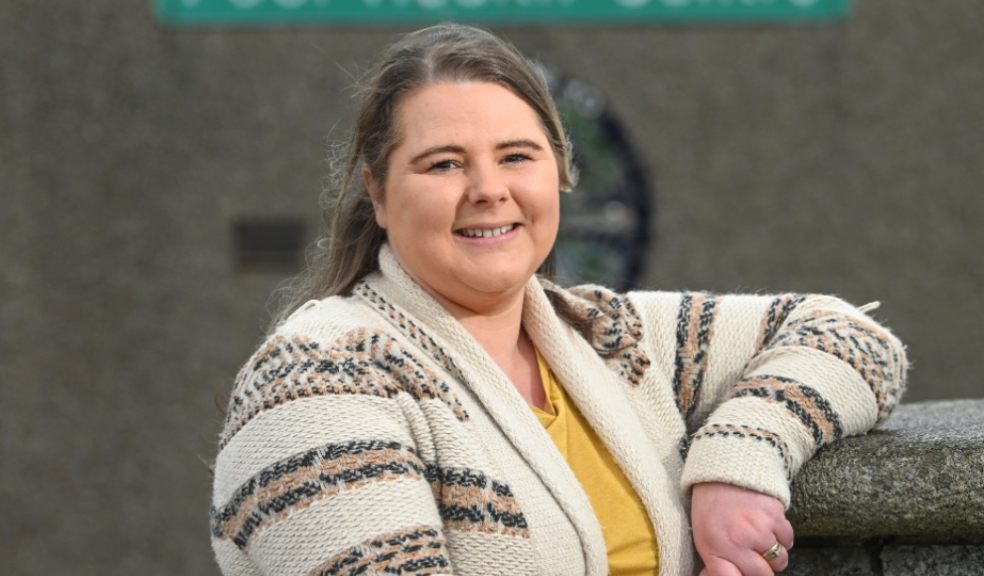
People from South West Peninsula urged to Be Part of Research
Devon residents are being urged to sign up to a new UK-wide health and care research registry, as part of the nation’s biggest-ever recruitment drive for clinical trials.
The call comes as new figures reveal that more than 63,000 participants took part in health and care research supported by the National Institute for Health and Care Research (NIHR) in the South West Peninsula region in 2024/25.
Health and care leaders are calling on residents to register with the NIHR’s Be Part of Research registry. This free online service matches people to suitable studies based on their interests, location and demographic data, such as age, sex and ethnic group.
More than 27,000 people in the South West Peninsula have already joined the service since it was piloted in 2022. They are among more than half a million people registered across the UK.
But significantly more people are being asked to sign up to this life-changing resource. The campaign, which launches today (16 June), aims to raise the number of registrations to 2 million people.
People choose conditions for trials they want to take part in, for example heart disease and diabetes. They are then contacted about suitable trials by email - making it easier than ever to find and take part in vital health and care research.
Jo Davis, Network Director, NIHR South West Peninsula Regional Research Delivery Network, said: "These figures highlight the dedication of our local communities to improving health outcomes for everyone. It's fantastic to see so many people in the South West Peninsula region actively participating in health and care research already. Thanks to everyone involved - those in the research system massively appreciate it.
“We want to make health and care research available and accessible to as many people as possible, whoever they are and wherever they live. Joining Be Part of Research makes this easier, as I’ve found myself since I signed up. You can already get directly linked up with studies that align with your interests, supporting the development of new treatments and care.
“This will develop more and more in the future, as increasing numbers of people, and studies, sign up to Be Part of Research. It’s a great initiative for empowering people.”
Taking part in health and care research helps develop new treatments, improves the NHS, public health and social care, and saves lives. Everyone can take part, whether they have a health condition or not. Some studies seek people without the condition being studied, so researchers can compare them to those who have it.
The studies on Be Part of Research take place in a range of places including hospitals, GP practices, or even from home (for example, by responding to an online questionnaire about a person’s health condition).
Be Part of Research has already been used to enrol more than 90,000 people across the UK to over 100 studies, including the UK’s first norovirus vaccine trial.
The call for more people to sign up comes as new figures reveal that more than 63,000 participants took part in studies supported by the NIHR in the South West Peninsula in the 12 months from 1 April 2024 (see notes to editors for full figures).
Professor Lucy Chappell, CEO of the NIHR and Chief Scientific Adviser to the Department of Health and Social Care, said: “Tomorrow’s treatments are today’s research. We are calling on the British public to sign up to Be Part of Research, our world-leading register, to find studies that they can take part in. Whether you are a healthy volunteer, or have a particular condition, you can be part of research that makes a difference.
"It is vital that health and care research represents society, reflecting the diversity within it to produce the best treatments. Research that includes people from all backgrounds and from across the country will produce findings that benefit and serve everybody. Being a part of research is a great way to get involved and give back in a way that can change lives, accelerate knowledge and benefit us all. Members of the public will be able to use the NHS App and be matched to vital trials through the Be Part of Research service.”
Helping increase uptake of cervical screening through research: Laura’s story
Laura Wills, 33, from Redruth took part in a trial of a new self-testing method of cervical screening, and based on her experience believes it could increase uptake of the lifesaving procedure.
Laura, a retail Supervisor, was invited to participate in the trial by her GP practice Homecroft Surgery, part of Carn to Coast Health Centres. She said: “When it was time for my routine smear test, I was texted by my usual nurse to see if I was interested in participating in this study. I’m very happy to get involved in research, because it benefits everyone. I was keen to take part.
“The nurse gave me the swab and I did it there and then. It was small and not painful, probably even less than the usual smear test to be honest. It was very quick and easy.”
Cervical screening checks for the presence of human papillomavirus (HPV), which is very common but can sometimes cause abnormal cells in the cervix. If left untreated, this can turn into cervical cancer over time.
The study Laura took part in was set up to help find out if self-taken samples are as accurate at identifying HPV as standard screening tests carried out by a nurse. The results of the study, published late last year, showed that self-testing worked well, and provided evidence on how to increase cervical screening in people who don’t normally take it up.
In England, cervical screening currently prevents around 70% of cervical cancer deaths, but about 3 in 10 people do not take up the offer of screening. More deaths could be prevented if everyone invited for screening took it up.
Letting people take their own sample for HPV testing could help remove a barrier to attending screening appointments.
Laura continued: “I do think this could encourage people to take up the offer of cervical screening. Particularly younger women who might not have had children, or if it’s their first time, you can understand why they might find it embarrassing.
“I personally think if you could do a smear yourself, or even at home in future, it would be a lot easier, a lot quicker and a lot better.”
People can sign up to be contacted about studies that are right for them by creating a free Be Part of Research account at bepartofresearch.uk.

















